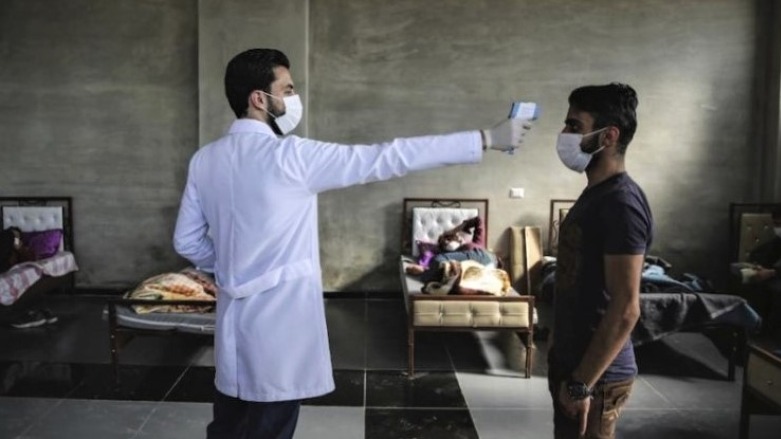Syria's Kobani in need of vaccines to prevent outbreaks: MSF

ERBIL (Kurdistan 24) – There is an urgent need for sustainable solutions to ensure that people in the Kobani in northeast Syria can have long-term protection against vaccine-preventable diseases, including COVID-19 vaccines, the international humanitarian medical organization Médecins Sans Frontières (MSF) warned on Friday.
“People in Kobane/Ain Al-Arab district are cut off from the national immunisation programme because of a lack of political will to serve the area. This is leaving humanitarian organisations to fill the gap, who face logistical and supply challenges in an area affected by ten years of war,” MSF said.
“Meanwhile, the routine immunisation programmes managed by the Syrian Ministry of Health and supported by World Health Organisation (WHO) and UNICEF reach other regions to ensure routine vaccination coverage,” MSF said. “However, the population of Kobane/Ain Al-Arab district, as well as districts in northern Syria, are left behind.”
In March, over 100 local civil society organizations and institutions in northeastern Syria expressed concerns regarding the distribution of COVID-19 vaccines in their areas by the WHO. In February, Human Rights Watch (HRW) also expressed worries that Damascus would not distribute COVID-19 vaccines in Syria’s northeast.
MSF said that along with lacking routine immunizations, COVID-19 vaccinations have barely reached Kobani.
While some 23,000 COVID-19 vaccines have recently been delivered to other parts of northeast Syria, accounting for less than 1% of the population, a meager 100 vaccines have arrived in Kobani, MSF said.
In an effort to reduce the immunization gap, MSF has worked alongside local health authorities in Kobani district since March 2015 to re-establish routine immunization services in the area.
MFS also said that the health system in Kobani district is not functioning fully and cannot meet local needs.
“There are shortages of medical supplies and personnel, and many medical programmes depend on support from humanitarian organisations,” MFS said.
“Security issues caused by upsurges in the armed conflict and associated logistic challenges have hampered the supply of vaccines and people’s ability to access health services to receive recommended vaccinations, and these challenges remain today,” the organization said.
Such disruption contributes to a widening immunization gap and increases the likelihood of outbreaks of vaccine-preventable diseases, MSF said.
“Political sensitivities must not impact national vaccination plans,” Hanna Majanen, the MSF Medical Emergency Manager for northeast Syria, was quoted as saying in the statement.
“All measures must be taken to find practical solutions to ensure the population of Kobani/Ain Al-Arab district is included in the national immunisation strategy as well as the COVID-19 vaccination strategy.”
